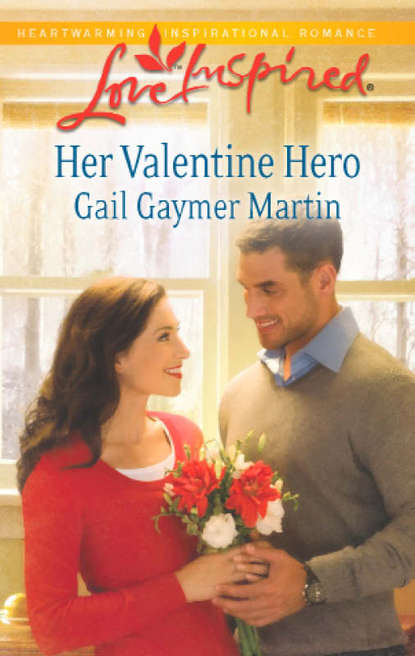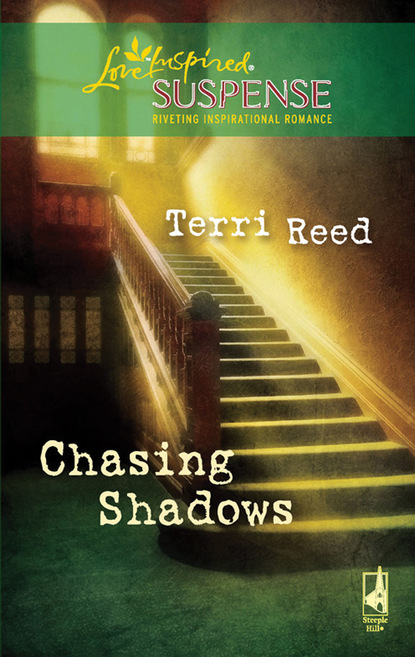
Полная версия
Glory Be!
“Not half as happy as I am,” Emma muttered tiredly.
A routine ninety-minute drive from Portsmouth, Virginia, had become a two-and-a-half-hour creep through lashing rain, with the windshield wipers on the Volvo straining on high for much of the trip. Now the on-again, off-again rainstorm looked ready to start up again during the evening.
The traffic light at the corner of Main Street and King turned red. Emma wished that she had visited the advertising agency that morning, as planned, rather than letting it slip to the afternoon.
That stupid prank upset my day.
Breakfast at the Captain had turned into a festive celebration, with Noelle Laurence, the Baltimore newscaster who happened to own the Beetle, arranging impromptu interviews with Emma and Coach Yeager.
“I hope my homemade videotape is usable,” she said. “I’d love to run this story on the Five O’Clock News.”
Emma couldn’t imagine why anyone in Baltimore would care about a Volkswagen on her porch. She was even a bit surprised when Rex Grainger, the editor of the Glory Gazette, called to verify the name of the car’s owner. Friday’s issue, he promised, would include a hard-hitting exposé entitled “The Beetle Battle: Glory Gremlins 1, Vandals 0.”
He wasted ten valuable minutes commiserating with me about my wasted morning.
Everything Emma had done that day took longer than usual. Cleaning up after breakfast, checking guests out, confirming reservations, helping Peggy Lyons prepare the bedrooms—they all dragged on past their allotted times. Emma finally left for Portsmouth at one o’clock and spent longer than she meant to chatting with Todd Harris at the agency.
You should have declined that last cup of coffee, Emma thought, guiltily.
Giving in had seemed the friendly thing to do. Todd was in a chatty mood as he presented the new designs for her brochures, Web site and menu covers. He wanted to talk about strategies for marketing The Scottish Captain to vacationers from Great Britain. He suggested another cup of coffee, and Emma forgot about the threatening sky and her intention to go to choir practice that evening.
Glory Community Church had a fine, but small, choir. As Nina McEwen, the choral director, often said, “With only seventeen singers, every voice counts.” Emma tried her best not to miss church services or practice sessions.
The traffic light turned green; Emma turned left onto King Street. It was now raining quite heavily. She looked at the dashboard clock. Ten after seven.
I’ll only be a little late.
There was no other traffic in sight as she drove three blocks north then made a right turn into Glory Community’s parking lot.
She stepped out of the dark red Volvo and almost collided with Reverend Daniel Hartman.
“Good evening, Emma,” he said, as he pirouetted out of her path.
“Oh! I didn’t see you.”
“Let’s get out of the rain.” He tugged open the back door.
Emma walked into a cacophony of heated words. The raised voices filling the corridor were angry—and easy for her to recognize.
“Nonsense!” Lily Kirk bellowed. “Your bad behavior has nothing to do with worship. The young people in this church are ungrateful whelps, with no appreciation for tradition.”
“Nobody says ‘whelp’ anymore,” Debbie shouted back. “You talk like you think—out of date.”
“Oh, my!” Daniel said. “Our star sopranos are dueling.” He scooted around Emma and plunged into the practice room. She halted in the doorway and watched the fracas unfold.
Lily and Debbie stood on opposite sides of Nina, who kept whacking her music stand with her conductor’s baton.
“Where is the respect that my generation showed its elders?” Lily ranted. “We never would have stooped to committing spiteful practical jokes. Imagine tormenting a defenseless fish!”
“If you want respect from me, earn it!” Debbie returned heatedly. “And for your information, we don’t do practical jokes. Because you have the media on your side, we’ve been forced to launch a campaign of harmless civil disobedience to get our position better known. The fish, by the way, seemed happier in his new home.”
Nina whacked harder, flinging specks of white paint in all directions.
Reverend Hartman tried to intervene. “Please, ladies! Please! This is neither the time nor place to argue about church business.”
The sixtyish Lily, who had once sung on Broadway, ignored both pastor and director and upped the stakes. She spread her arms wide and belted out, “Spiteful! Spiteful! Spiteful!” Each crystal-clear word pitched higher than the one before.
Debbie, a seventeen-year-old high school student, couldn’t match Lily’s colossal volume, but she did manage to hit an even more shrill high note when she sang, “Out of date! Out of date! Out of date!”
Nina smashed her baton against the music stand in a mighty final whack that sent the baton’s red tip flying over Emma’s head and out the door.
“Nooo!” Nina shrieked. She flung her broken symbol of musical authority against the back wall. “This is intolerable. Fifteen-minute break!”
Emma stepped aside. Nina—hands trembling, tears in her eyes—ran past her and made for the ladies’ room.
“Now see what you’ve done?” Lily leveled an accusing finger at Debbie, who seemed, Emma thought, to be genuinely dismayed by Nina’s abrupt departure.
Before Debbie could reply, Tony Taylor, the choir’s lead baritone, a retired naval officer who owned the Glory at Sea marina, entered the fray. “That’s not fair, Lily! This is your doing. You started the ruckus by baiting Debbie—she merely defended herself.”
Lily held her ground. “Of course you would take the girl’s side. You also sing at the contemporary service.” She hissed the word contemporary as if it was obscene.
“I agree with Lily!” said Lane Johnson, the choir’s lead tenor and Glory’s postmaster. He threw back his broad shoulders and glared at Tony. “You’ve never liked the traditional hymns—probably because you sing a weak baritone.”
“Who asked for your dumb opinion?” Tony growled at Lane.
“Who made you king of the choir?” Lane barked back.
Emma wasn’t sure whether Tony or Lane landed the first push, but a moment later the pair was wrestling on the floor, surrounded by fallen music stands and hymnals.
Rafe Neilson, who had been standing in the back row with Sam Lange, the choir’s other baritone, raced forward to pull Tony and Lane apart, while Jacqueline Naismith, a retired schoolteacher who sang alto, used her considerable bulk to shield a small, vulnerable table that held several pitchers of iced tea and a tray of cookies. The other members of the choir watched the spectacle with grim determination. Emma noted that some of them were actually enjoying the brawl.
BWANG!
The raucous noise made Emma spin around. She saw Daniel Hartman standing next to the piano and realized that he had slammed both hands down on the keyboard to end the fight. Rafe yanked Tony to his feet in one powerful heave and then reached back down for Lane.
“We will have an interlude of prayer!” Daniel roared, in a commanding voice that Emma concluded must have been perfected in the military.
All extraneous movement in the choir ceased. Heads bowed instantly. Emma lowered her chin to her chest but kept her eyes wide open.
“Lord,” Daniel began, “we ask for Your peace tonight. There’s a storm blowing through Glory Community and only You can help calm the waters. You know better than us that truly devoted believers often disagree about the best ways to advance the Kingdom of God. Well—give all of us the hearts to forgive our debtors. And help us to remember that we raise our voices in this building for one purpose only—to proclaim Your glory. In Jesus’s name we pray.”
Emma joined in the rumbling group “Amen.” Daniel Hartman had spoken a fairly reasonable prayer—one she had no qualms affirming.
Daniel continued, “Someone find Nina. Assure her that her choir will be prepared to sing rather than fight after the break.”
Emma felt a touch on her arm. She turned and saw Rafe’s smiling face.
“You look confused,” he said. “Don’t you know what’s going on at our church?”
Emma fought to control her irritation at his remark. She scanned the practice room. The choir had broken into several small groups. No one was looking their way. She bent her head close to his.
“If you had asked me this morning, Mr. Neilson, I would have gladly explained that I am not a member of Glory Community Church. I sing in your choir for three specific reasons. One, I have a good voice. Two, I enjoy choral singing. And three, Nina McEwen is a fabulous choral director.
“Moving right along—I understand all too well how churches work. The chief reason I chose not to join Glory Community Church is that The Scottish Captain keeps me busy fifteen hours a day and I have no time left for church politics or taking sides in silly debates. I had intended to join Glory Community, but Nina was kind enough to warn me about the current fight, without giving me any details. I decided to bide my time. I saw no need to become part of a church in crisis.”
Emma was pleased to note that her declaration knocked the wind out of Rafe’s sails. His smile had faded as she spoke, along with the grating I’m-a-cop-who-knows-everything self-assurance written across his face.
But along with her amusement, Emma felt a surprising stab of guilt. She had told Rafe the truth, but not the whole truth. The ongoing fight was only part of the reason she’d refused to become a member of Glory Community.
Two years earlier, Emma’s then husband had filed for a no-fault divorce, moved out of their home and announced that he really, truly loved another woman. Much to Emma’s astonishment, most of her church friends back in Seattle blamed her for the failure of the marriage.
“Emma put her career ahead of her marriage.”
“Emma canceled too many vacations because of her work.”
“Emma should have quit her job and had children like a normal woman.”
Her small group, the people she worked with on the church’s hospitality team, even the other members of the praise choir turned against her.
Emma drove the unhappy memories away by focusing on the present. “Perhaps I’ll change my mind when the brawling is over,” she said to Rafe.
“I assumed that everyone in the choir was also a member of the church,” he said.
“Why would you assume that?”
He shook his head. He started to speak, but shook his head again and gazed into the distance.
Emma found herself intrigued by the way Rafe was suddenly tongue-tied. It gave him the demeanor of a little lost boy—and, surprisingly, made him seem attractive to Emma for the first time today.
She used the opportunity to study Rafe. He stood a bit over six feet tall and had the lithe, athletic frame of a man who frequently worked out at a gym. He had short sandy hair, deep-set hazel eyes and an agreeably handsome face—now that his earlier arrogance had vanished. Perhaps she could help him remove the foot he had placed so squarely in his mouth?
“This morning you seemed surprised that I didn’t understand the Phantom Avenger’s message to me. Please tell me what I need to know.”
Rafe hesitated. Emma could almost hear him thinking, Does she really mean it? He eventually gave a cautious nod of agreement. “Have you heard of the Caruthers bequest?”
“Nary a word.”
“John Caruthers was a choir member for thirty years. When he died last year, he left the church six hundred thousand dollars. John put one stipulation on his gift—it must be used to advance the church’s ministry of music.”
“How?”
“That’s the root of the problem. Two groups have come up with plans for investing the bequest. One wants to replace our electronic organ with a full-size pipe organ to enhance the traditional service. The other wants to rebuild the sanctuary and install the kind of electronic instruments and audiovisual equipment to support a world-class contemporary service. The two schools of thought have hardened into opposite sides. The church is split down the middle.”
Emma sighed heavily. “Why do so many Christians I meet fight with each other about church?”
“The fans of the contemporary service invented the Phantom Avenger. You heard Debbie Akers—she and her colleagues have launched their self-styled campaign of civil disobedience because the Glory Gazette has come out on the side of the Traditionalists.” He peered inquiringly at her. “You have heard of the Gazette?”
“Of course. I spoke to the editor today. He seemed very sympathetic.”
“Rex Grainger sang with Lily Kirk in the choir for more than two decades. He retired from the choir three years ago, but the Gazette is squarely in the Traditionalist camp.”
“He promised to publish a hard-hitting story about the Beetle.”
“Rex will need to add pages. The Phantom Avenger struck four times this week.”
“More cars on porches?”
“In the middle of Monday morning, someone moved a two-foot-long koi fish from Richard Squires’s pond to the Memorial Fountain opposite Town Hall.”
“So that’s the defenseless fish that Lily mentioned.”
“The Phantom’s note said, ‘We won’t scale down our demands for a better contemporary service.”
Emma chuckled. “The Phantom has a bizarre sense of humor.”
“Fortunately, our fountain is fed by unchlorinated springwater—or else that koi would be history. Richard claims his big goldfish is twenty-five years old and worth more than two thousand bucks.”
Emma looked across the practice room at a balding man in his fifties who sang tenor in the choir. He was engaged in an animated conversation with Tony Taylor. She turned back to Rafe and said, “Richard must support the Traditionalists.”
“All the way. He loves hymns and hates praise music.” He chuckled. “And so does Lily Kirk. Yesterday, someone dressed up the statue of Moira McGregor in Founders Park to look like Lily and put a sign around her neck. ‘Attention, all pigeons in the vicinity of Glory. Please show Ms. Kirk what you think of the traditional service. The Phantom Avenger strikes again!’”
Emma tried not to laugh, but a giggle came out nonetheless. She quickly said, “Who was the target of the fourth prank?”
Rafe seemed to fight back a smile. “Gary Porter—my boss. Yesterday, Chief Porter found a phony parking ticket tied to his radio antenna. It read, ‘Caught in the act of trafficking with blowhard Traditionalists who insist on buying an old-fashioned pipe organ. We believe that you would come to church regularly to worship at an arresting contemporary service. Don’t fail to yield!’”
“Is the chief a member of the church?”
“No, but his daughter is. Michelle Porter Engle.” Rafe gestured discreetly toward the petite redhead who stood chatting with Lily Kirk. “One of your fellow sopranos—and also a steadfast advocate of our traditional service.”
Emma leaned back against the wall. She really wanted to sit down, but the only unoccupied chairs were across the room. “How did I get lumped in with the Traditionalists?”
Rafe shrugged. “Most of the choir supports the traditional service. That’s the way I feel—and that’s how I had you pegged. The Avenger must have made the same mistake.”
“Do you know who the Phantom is?”
“I have my suspicions.” He chuckled.
“Are you going to do anything about it?”
“If you mean, do I plan to arrest the ringleaders, the answer is no. You won’t see any perps in handcuffs tonight.”
“I didn’t get my hopes up real high. I know how law enforcement works in small towns where everyone knows everyone else. I grew up in an even smaller town in northeastern Pennsylvania.”
“It’s not that simple. First, I haven’t been able to determine what crimes were committed. We don’t have a statute or ordinance that criminalizes the relocation of a big goldfish. Second, I don’t see any criminal intent in what was done—the pranks are technical violations, at worst. However…” Rafe’s expression became serious. “However, I plan to speak to the folks involved face-to-face and explain why you—and Richard Squires—are extremely displeased. I’ll try to arrange some free yard work in return for your three complimentary weekends.”
Emma took a moment to think about it. “That seems fair enough, considering no real damage was done. My porch is okay, and the couple from Baltimore drove north after breakfast. Case closed!” She peered at him. “Do cops really say that?”
“Sure. Except this case won’t be really closed until our church decides how to spend the six hundred thousand dollars.” Rafe looked down at his hands. “Paul was right—money is the root of all evil.”
“He didn’t write that.” Emma waited until Rafe glanced quizzically at her. “Paul had nothing against wealth. He warned us against the love of money.”
“Are you sure?”
“Absolutely. Check out First Timothy. Chapter six. Near the middle.”
“I’m impressed. You know your Bible.” He offered a rueful smile. “I wish I did.”
“I’ve been studying the Bible since I was a kid.”
Rafe laughed. “A Bible whiz who refuses to join a church—that’s an odd combination.”
“Not really,” Emma said quietly. “I love Christianity. It’s those Christians that fight I can do without.”
THREE
The blue clapboard Victorian on Front Street was a smaller house than Rafe had wanted. It had only one full bathroom and a single-car garage, and cost half-again more than he had planned to spend, thanks to its stunning view of Albemarle Sound. But his teenage daughter, Kate, had loved the “gingerbread-detailed charmer” from the instant she saw its picture pinned up in the front window of the Realtor’s. That had been enough to sway Rafe.
Every light in the house was turned on when Rafe maneuvered his Corvette into the driveway—a gentle protest by Kate that he had left home before sunup and was returning fourteen hours later. A small-town policeman’s lot included long days, but Rafe usually managed to eat breakfast and supper at home. Today, the pranks had gotten in the way.
He found her in the living room watching a cheerleading DVD. He moved behind her and kissed the top of her head just as a blond cheerleader on the TV screen tumbled to the ground from the top of a three-layer pyramid of fellow cheerleaders.
“Oooh, that’s gotta hurt,” Kate said.
“Is this some sort of training video? Teaching you about safety, I hope.”
“Uh-uh. It’s an hour of cheerleading goofs and bloopers. Funny stuff.”
“Not for the gals who hit the ground hard. Or their parents.” Rafe came around to the front of the sofa and sat down next to Kate. She was fifteen, with a tall, long-legged, athletic build and a face that was pretty and intelligent at the same time. She had big brown eyes, fine features and shoulder-length reddish-brown hair. Rafe’s eyes flicked toward the framed photograph atop a bookcase. Kate was becoming more like her mother with every passing day.
“I’m on the freshman cheerleader squad, remember?” Kate said. “No jumps or stunts or pyramids.”
“For which I am exceptionally grateful.”
She used the remote to turn off the TV. “Anything interesting happen today?”
He grinned and tapped the end of her nose. “A good try, but I’m sure that every kid in town knows about the Volkswagen.”
She countered by tapping his nose. “How was choir practice? Anything unusual happen?”
“Wow. You even know about the fight. I’m impressed—the power of cell phones in the hands of teenagers is awesome.”
Rafe felt sure that she cracked a smile.
“I didn’t arrest anyone tonight,” he said, “but I will if there are any more wrestling matches at church. We actually had a pretty good rehearsal after the hotheads cooled down.”
Kate nodded.
“My theory,” he said, “is that the epidemic of pranks in Glory has put lots of people on edge.”
Kate focused her eyes on the remote control in her lap.
“Let’s go off the record,” he said. “I want to send a message to the student who’s planning the gags. I presume you know who’s in charge, since you know everything about everyone under the age of twenty-one within a radius of fifty miles.”
“Why assume a kid is responsible?”
“Because I don’t know any adults who could convince the high school football team to move a Volkswagen Beetle from a parking lot to a porch.”
“It’s not that simple….” She finished the sentence with a shrug.
“No?”
“There isn’t a single student in charge—it’s more of a committee.”
“Committees have chairpersons.”
“This one has a book.”
“A book…?”
“Great Practical Jokes of the 1950s and 1960s. It’s an antique, published way back in 1970. Kids are passing it around Glory High like the baton in a relay race. Whoever has the book must do one of the jokes. Then he or she gives the book to someone else who has the nerve to do another one.”
“Specifically, a high school student who also supports the contemporary service at Glory Community Church?”
“Well, duh!”
“Do you have to attend our church to receive the book?”
“Nope. You just have to know what kind of music you prefer.”
“Do I have to ask which side you’re on?”
“I think organ chords are icky. They make me think of old horror movies. Anyway, I like to hear drums when I listen to music, and they never have drums in a traditional service.”
“Never?”
“Never!” She added a definitive shake of her head.
Rafe thought about it and realized that Kate might be right. He had seen many kinds of musical instruments played at traditional church services—violins, cellos, trumpets, guitars, flutes, trombones, pianos, bells, even an accordion—but never a full drum set. Those who favored drum-accompanied music would probably prefer a contemporary service. Of course, Kate also seemed to have more than a passing interest in the seventeen-year-old male drummer who played at Glory Community every Sunday.
“Tell me more about this antique book,” he said.
“It’s incredibly cool…” she began, and then realized her mistake.
“I get it. The book was passed to you.”
“No comment.”
“I assume that means you committed a prank.”
Kate fiddled with the remote in her hands. “You’ll never get me to confess to anything.”
“Then let me play detective. You don’t know much about cars, so you wouldn’t come up with the idea of moving a Volkswagen. You’re too smart—and I think too compassionate—to risk killing a fish. You don’t have easy access to the old clothing placed on Moira McGregor. But you do have a fancy computer, several graphics programs and a good ink-jet printer. I think you created the phony traffic ticket found dangling from Chief Porter’s radio antenna. In fact, the more I think about it the more sense it makes. You weren’t taking much risk marching into the parking lot behind Police Headquarters and affixing said ticket. If anyone spotted you, you could simply say you left something in my ’Vette.”
“I admit to nothing.”
“The clincher is the spelling error.”
Kate peered at him quizzically.
“You wrote ‘trafficing,’ without the k. The correct spelling is trafficking. We both know that spelling is your weakest subject.”
Kate pushed a lock of hair away from her face but said nothing. Rafe pressed on. “Where did the book come from? Don’t try to tell me it’s on loan from the school library.”
“Well, I don’t know this for a total fact, but I think the book came from Sam Lange’s bookstore.”
Rafe grunted. The Glory Book Nook was the logical source for an “antique” book. Although Sam sold both new and used books, he seemed to make more money from the old volumes on his shelves. He specialized in quirky topics and did a thriving Internet business with book collectors.
“Okay, I’ll do some more detecting. Jake Moore, a junior at Glory High, works three afternoons a week and all day Saturday at the Book Nook, so he had the means to acquire the book in question. Jake is also a member of the church choir, which gives him a motive…except…”






